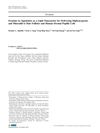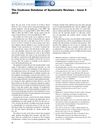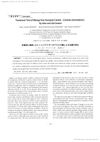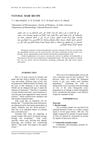
Search
for
Sort by
Research
990-1000 / 1000+ results

research Chemical Examination of Three Indian Medicinal Plants and Their Hair Growth Evaluation Studies
Three Indian medicinal plant compounds help hair growth.

research The Cochrane Database of Systematic Reviews - Issue 5 2012
The Cochrane Database published its 5000th review in 2012, covering various health topics and updating conclusions based on new research.

research Treatment Trial of Mangy One-Humped Camels (Camelus Dromedarius) by Aloe Vera Gel Leaves
Aloe vera gel effectively treated mange in camels.

research Dermatological History and Examination
A thorough history and examination are crucial for diagnosing skin diseases, which affect up to a third of people. This includes details about skin lesions, medication, general health, lifestyle, family, and contacts, as well as examining the rash, hair, nails, and mucous membranes. Changes in hair and nails can also indicate other medical and skin disorders.

research Natural Hair Recipe: Evaluation of Natural Preparations for Hair Loss Treatment
The natural hair treatment with Cantharidin works best for hair loss.

research Hair Disorders Update: Alopecia to Hirsutism
New treatments for hair loss and excessive hair growth show promise with few side effects and advancements in laser technology.

research Advances of Non-Ionic Surfactant Vesicles (Niosomes) and Their Application in Drug Delivery
Niosomes are a promising, stable, and cost-effective drug delivery system with potential for improved targeting and safety.

research Cosmetics and Cosmeceutical Applications of Chitin, Chitosan, and Their Derivatives
Chitin and chitosan are useful in cosmetics for oral care, haircare, and skincare, including UV protection and strength improvement.

research A Randomized, Placebo-Controlled Trial of 5% and 2% Topical Minoxidil Solutions in the Treatment of Female Pattern Hair Loss
5% and 2% minoxidil solutions effectively promote hair growth and reduce hair loss, with 5% being slightly more effective but having more side effects.